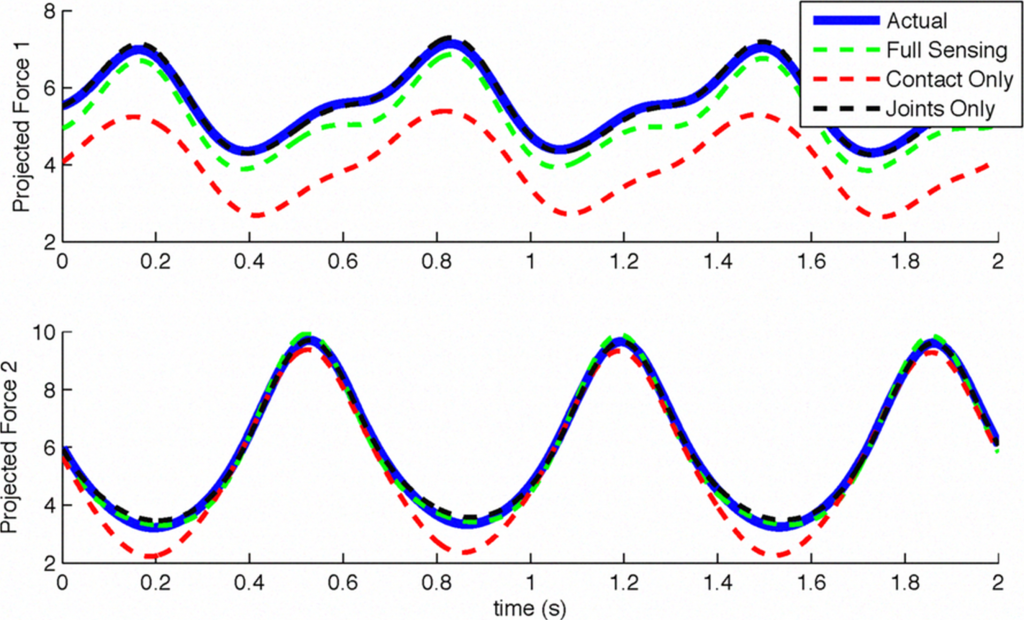Abstract

Recently, several controllers have been proposed for humanoid robots which rely on full-body dynamic models. The estimation of inertial parameters from data is a critical component for obtaining accurate models for control. However, floating base systems, such as humanoid robots, incur added challenges to this task (e.g. contact forces must be measured, contact states can change, etc.) In this work, we outline a theoretical framework for whole body inertial parameter estimation, including the unactuated floating base. Using a least squares minimization approach, conducted within the nullspace of unmeasured degrees of freedom, we are able to use a partial force sensor set for full-body estimation, e.g. using only joint torque sensors, allowing for estimation when contact force measurement is unavailable or unreliable (e.g. due to slipping, rolling contacts, etc.). We also propose how to determine the theoretical minimum force sensor set for full body estimation, and discuss the practical limitations of doing so.
Copyright Notice
The documents contained in these directories are included by the contributing authors as a means to ensure timely dissemination of scholarly and technical work on a non-commercial basis. Copyright and all rights therein are maintained by the authors or by other copyright holders, notwithstanding that they have offered their works here electronically. It is understood that all persons copying this information will adhere to the terms and constraints invoked by each author’s copyright. These works may not be reposted without the explicit permission of the copyright holder.